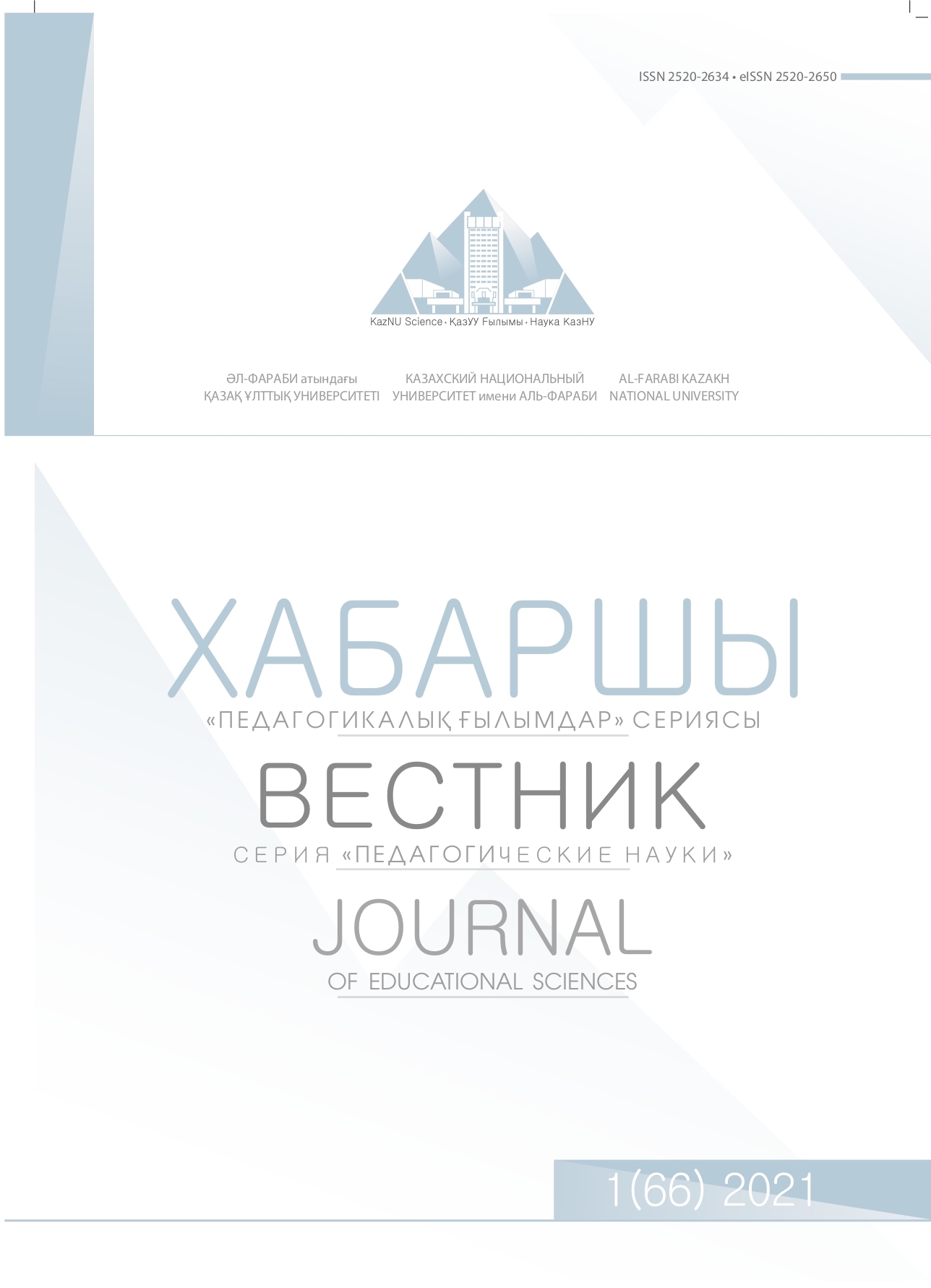Transversal Competence: Importance in Educational System
DOI:
https://doi.org/10.26577/JES.2021.v66.i1.02Abstract
The importance of developing students’ transversal competences, as well as the level of develop- ment of transversal competences in higher education institutions are discussed in the article. The com- ponents of transversal competences and methods are analyzed and aimed at the formation of students as citizens in accordance with the educational system suitable for a developing society. The following set of transversal competences such as critical and innovative thinking, creativity, digital literacy, informative literacy, problem solving, teamwork, foreign language proficiency, etc. that are at the center of attention of the global educational system and are recognized in the universities of the European Union and which should be developed are revealed in the article and the connection between 21st century skills or “life skills” with transversal competence are shown as well.
These competences are widely used in scientific literature, in the learning process under the follow- ing names: general competences, strategic competences and key competences. These competences are characterized by the ability to quickly adapt and move from one field of activity to another, and also play a key role in achieving success in the labor market.
In addition, the research was carried out on the basis of TRANSMOD project questionnaire (2014). 50 respondents participated in the current study. The level of formation and development of transversal competence in higher educational institutions of the country was identified and analyzed as a result of the research.
Key words: transversal competence, transversal skills, digital literacy, 21st century skills, labor market.















